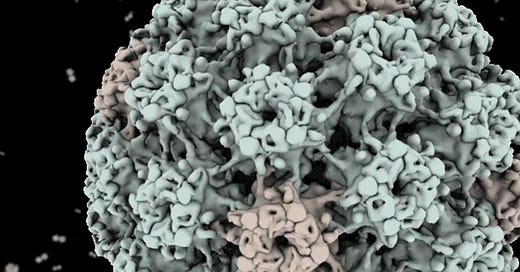Important Reads: Will HPV Vaccination Prevent Cervical Cancer?
Free Article, Journal of the Royal Society of Medicine
It’s been 17 years since the first human papillomavirus vaccines came out. Claims that the vaccine reduces cervical cancer are misleading, for the following reasons:
The reports of reductions in “cervical cancer” did not measure cervical cancer.
The reported reductions were most frequently reductions in vaccine-targeted HPV types, not “all HPVs” (This has been the pattern in all of the studies!).
Available data conclusively now support type replacement (the replacement of vaccine-targeted types with rarer, potentially more aggressive types of HPV).
Data show increases pre-cancerous conditions in younger groups and no change in older women.
I and others have published articles on these important four points elsewhere (e.g., Epoch Times for example plus see Dr. Nicole Delepine’s article, PARADOXICAL EFFECT OF ANTI-HPV VACCINE GARDASIL ON CERVICAL CANCER RATE – Docteur Nicole Delépine (nicoledelepine.fr).
The Important Read on this topic is:
Will HPV vaccination prevent cervical cancer? https://journals.sagepub.com/doi/full/10.1177/0141076819899308
Summary
“We conducted a critical appraisal of published Phase 2 and 3 efficacy trials in relation to the prevention of cervical cancer in women. Our analysis shows the trials themselves generated significant uncertainties undermining claims of efficacy in these data. There were 12 randomised control trials (RCTs) of Cervarix and Gardasil. The trial populations did not reflect vaccination target groups due to differences in age and restrictive trial inclusion criteria. The use of composite and distant surrogate outcomes makes it impossible to determine effects on clinically significant outcomes. It is still uncertain whether human papillomavirus (HPV) vaccination prevents cervical cancer as trials were not designed to detect this outcome, which takes decades to develop. Although there is evidence that vaccination prevents cervical intraepithelial neoplasia grade 1 (CIN1) this is not a clinically important outcome (no treatment is given). Trials used composite surrogate outcomes which included CIN1. High efficacy against CIN1+ (CIN1, 2, 3 and adenocarcinoma in situ (AIS)) does not necessarily mean high efficacy against CIN3+ (CIN3 and AIS), which occurs much less frequently. There are too few data to clearly conclude that HPV vaccine prevents CIN3+. CIN in general is likely to have been overdiagnosed in the trials because cervical cytology was conducted at intervals of 6–12 months rather than at the normal screening interval of 36 months. This means that the trials may have overestimated the efficacy of the vaccine as some of the lesions would have regressed spontaneously. Many trials diagnosed persistent infection on the basis of frequent testing at short intervals, i.e. less than six months. There is uncertainty as to whether detected infections would clear or persist and lead to cervical changes.”




Yes, “paradoxical” is the right word according to French doctor Nicole Delépine: “Since vaccination, in all the countries implemented with a large vaccination program, there is a reversal of the trend, with a significant increase in the frequency of invasive cancers in the most vaccinated groups.”
http://docteur.nicoledelepine.fr/paradoxical-effect-of-anti-hpv-vaccine-gardasil-on-cervical-cancer-rate/
I think the challenge now is for someone to show efficacy for any vaccine. I'm not "anti-vax", but the trend towards these "miracles of science" being shown to do more harm than good is becoming overwhelmingly evident. I'm sure there are good preventative medications, and before the industry implodes under the weight of all its lies, it would be nice to have something positive come from all their work.